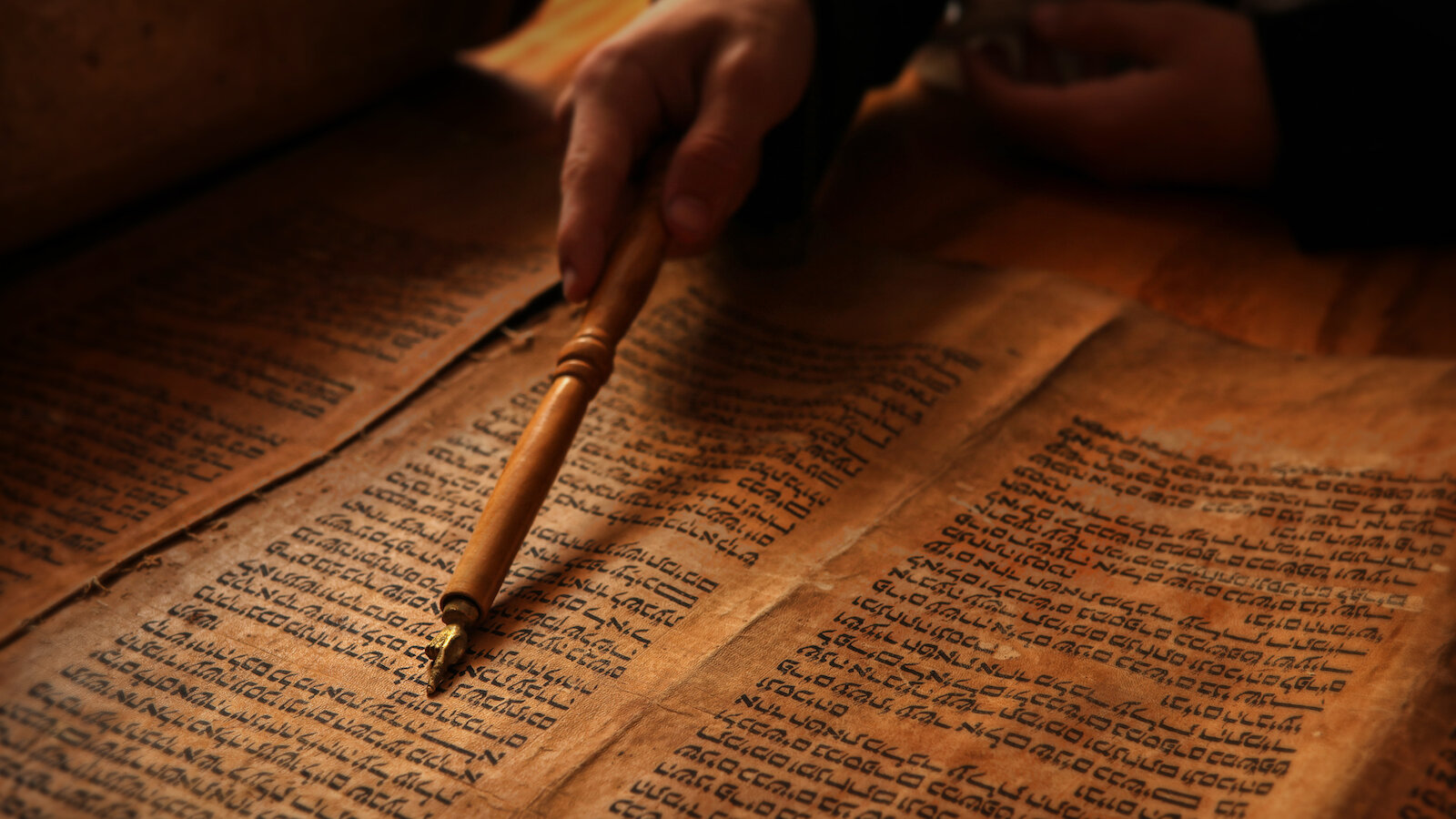
Modern-day scribes telling stories.
(don’t worry, it’s in English!)
Are Jewish People Who Believe In Jesus Still Jewish?
The assumption is always that when a Jew believes in Jesus, they are no longer Jewish. But this simply isn't the case. Faith in Jesus doesn't make someone any less Jewish. In fact, for many of us, our faith in Jesus has actually made us more Jewish.
But this misunderstanding, on both sides, is what has kept Christians from intentionally reaching out to Jewish people and what has kept Jews from understanding that Jesus is for them. The offer on the table for the Jewish people is that if you want to come to Jesus (the Jewish Messiah), you essentially have to switch teams, put on a new jersey, and go to the other clubhouse.
A Chosen People - God’s Eternal Relationship With Israel
We jokingly say that the Jewish people are just like everyone else in the world, only more so. It is not that we are better than anyone else, or smarter, or more numerous. In fact, our “chosenness” is something that most Jews would like to understand better. I certainly had no clue what being chosen meant. It didn’t always seem like a great deal to be chosen.
A New Day: The Feast Of First Fruits
This day changes history. You may call it Easter, or Resurrection Day, but Biblically this was known as the Feast of First Fruits, Yom HaBikkurim, and this was the command from Leviticus 23:
"Then the Lord spoke to Moses, saying, 'Speak to the sons of Israel and say to them, ‘When you enter the land which I am going to give to you and reap its harvest, then you shall bring in the sheaf of the first fruits of your harvest to the priest. He shall wave the sheaf before the Lord for you to be accepted; on the day after the sabbath the priest shall wave it.'" - Leviticus 23:9-11
For the Jewish followers surrounding Jesus, they had a rhythm oriented around the last day of the week, the Sabbath. Seventh day rest. The Sabbath has these archaic tones, embedded in the people, reminding them of their ancestral call to stop their work, trust in the provision of God, and enjoy Him. Even more deeply steeped in this tradition was a call to remember, that on that first, seventh day, God ceased from His work, in the holy temple of Eden, and communed with Adam and Eve.
Passion Week Through Jewish Eyes: The Testing BY The Lamb Of God
SO, four times Yeshua is confronted by the religious leaders, and four times He answers and shows Himself to be the perfect Lamb of God without spot or blemish. Scribes, Pharisees, Sadducees, Herodians all put Him to the test.
Now He turns the tables on them and He has a question for the religious leaders…on the last day that Yeshua is speaking publicly so it’s very important to hear what He says. And His last message is about His identity, who is He?
Passion Week Through Jewish Eyes: The Testing Of The Lamb Of God: The Sadducees
A third confrontation was from the Sadducees…
This confrontation was a question of THEOLOGY. It had to do with the Resurrection.
Differences between Pharisees and Sadducees:
Pharisees: Believed in the supernatural (Angels, demons, literal resurrection)
Sadducees: Did not
Passion Week Through Jewish Eyes: The Testing Of The Lamb Of God: Pharisees And Herodians
A second confrontation was from the Pharisees and the Herodians…
This confrontation was a question of POLITICS.
You have to realize that the Pharisees and the Herodians are at opposite ends of the political spectrum.
Herodians (Jews who) supported Roman rule through the Herodian dynasty.
Pharisees did not; They hated Roman rule and the Herodian influence.
These two groups had no common ground. The fact that they would join forces to trap Yeshua tells us something of how seriously both groups viewed Him as a threat.
Passion Week Through Jewish Eyes: The Testing Of The Lamb Of God: Priests And Elders
Entering Jerusalem as He did isn’t the end of the story. Unfortunately, in its modern day observance of Passion Week, it jumps from there right to the crucifixion. Palm Sunday → Good Friday. That is the result of the early church deciding not to follow the Jewish calendar. That decision was made at the Council of Nicea in 325 AD (It was a symptom of a deeper problem). What actually happened after the Triumphal Entry is that He went back and forth from Bethany to Jerusalem every day, and entered into dialogue (confrontation-attack) with four different groups:
The Priests and the elders
The Pharisees and the Herodians
The Sadducees
The Pharisees (take one more shot)
Passion Week Through Jewish Eyes: Setting Aside Of The Lamb Of God
This particular Passover was different from any other Passover. Maybe we should add a fifth question to our Haggadahs: Why is this Passover different from all other Passovers? This Passover is the climax of what Luke chronicles for us beginning in chapter 9:51-19:27 – that “He set His face toward Jerusalem” (v. 51).
Luke’s gospel account at this point represents a dramatic turning point in Yeshua’s ministry. After this, Galilee was no longer His base of operation.
Passion Week Through Jewish Eyes: The 10th Of Nisan
In Matthew 21, as Yeshua is riding into Jerusalem, it would seem that we have the proclaiming of a king. Behold your king is coming to you (Mt. 21:5); Blessed is the coming kingdom of our father David (Mk. 11:10). From all outward appearances it looks as if the people are proclaiming Yeshua to be the long awaited King-Messiah.
God’s Great Reversal: The Story Of Esther
When Mordecai is to be hanged on the gallows (tree) it is the lowest point of the story (v.15), and yet in the sovereignty of God the same gallows meant for Mordecai end up with Haman being hanged on them (6:10).
It is the greatest divine reversal. The greatest moment of defeat becomes the greatest moment of victory for Mordecai, Esther, and the Jewish people. The “Ha etz” that was meant for Mordecai became the gallows for Haman. And of course we have a picture of another reversal as we look at Yeshua and the cross (Ha etz, the tree).
When the enemy Satan thought that he had won victory, his victory was turned into defeat at the resurrection of the Messiah.
From Esther 1:1 - 5:14, we have tragedy after tragedy.
From Esther 6:14 - 10:3, everything is undone and reversed.
Are We Living In The Last Days?
Are we living in the last days? Are we at the end of the age? That is a 2,000-year-old question, and people are still asking it today. I get that question a lot. That’s because people look at the events that are taking place around them in the world today and they have a sense that we are heading toward some sort of cataclysm.
From a human perspective, it seems as if everything is falling apart. If you had no other way to look at the direction things are going you might say that. But from the divine perspective, everything is falling into place under the providential, mighty hand of God.
Crispy, Perfect Latkes, Every Time
Crispy Perfect Latkes, every time!
Food, family, holidays – what could be better!?
I love the day our family comes together to celebrate Hanukkah, eat latkes, sing the Dreidel song, and retell the story of the Maccabee Revolt and the Miracle of the Oil.
We don’t just serve latkes, we have a “Latke Throw-Down”! Each family makes a unique latke recipe with special savory toppings; all hoping theirs is the BEST!
Here is my favorite recipe - Enjoy!












